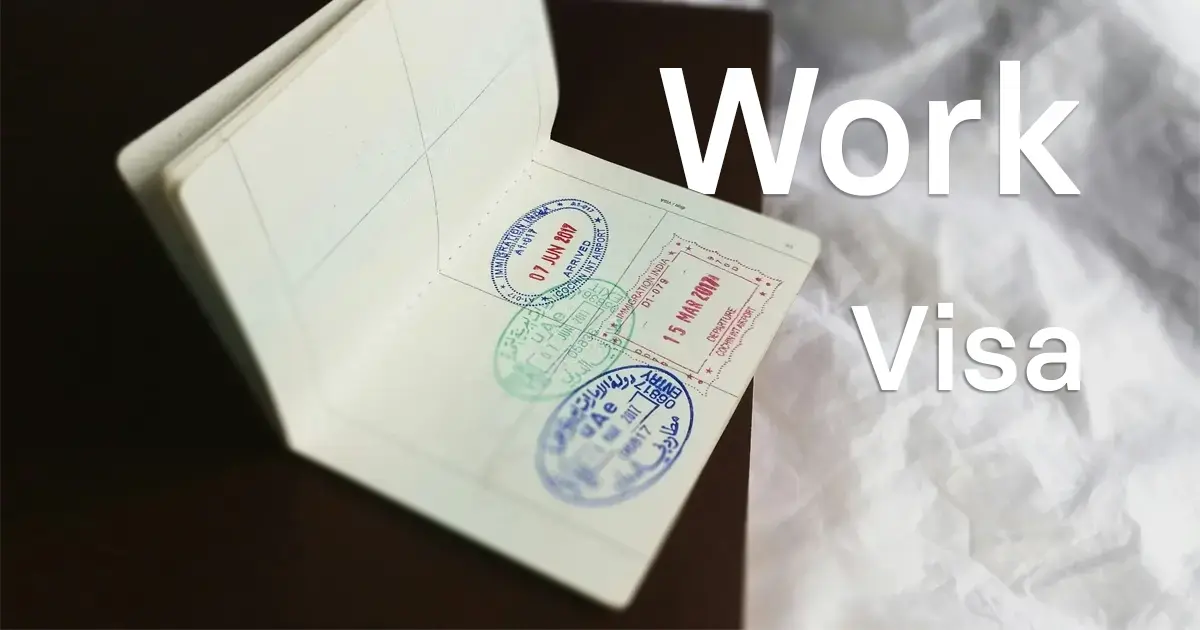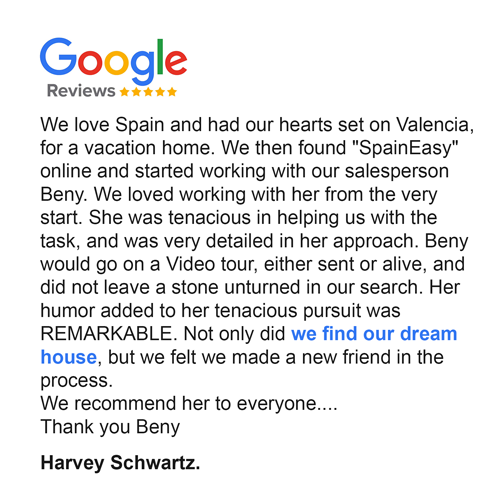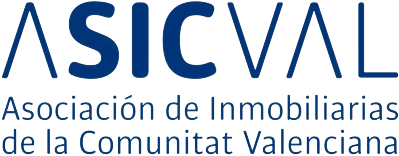
Work Visa for Spain: Types, Requirements and How to Apply (2025)
Last update: September 3, 2025
Reading time: 19.7 min
No Time to Read It All? Here’s the Quick Summary:
In 2025, non-EU citizens need a Spanish work visa to live and work legally in Spain. The best option depends on your situation: the Regular Work Visa is ideal if you have a Spanish job offer; HQP and EU Blue Card are fast-tracked for high-skilled professionals; Self-Employment and Digital Nomad Visas suit freelancers and remote workers; and ICT or Seasonal Work Visas are for company transfers or temporary jobs. Most visas can lead to long-term residency after 5 years. Application steps, eligibility, and timelines vary, so it’s key to choose the right path from the start.
Who Needs a Work Visa for Spain?
If you’re planning to work in Spain in 2025, knowing whether you need a visa is essential. Spain differentiates between EU/EEA/Swiss nationals and non-EU citizens.
EU/EEA/Swiss Citizens
You don’t need a visa to work in Spain, but you must still complete key registrations if staying over 90 days:
- Get a NIE (Foreigner ID Number)
- Register as a resident (Oficina de Extranjería)
- Complete empadronamiento (local census)
These steps are required to access healthcare, social security, and legally work.
Non-EU Citizens
A work visa is mandatory before entering Spain. In 2025, legal routes include:
- Regular Work Visa (job offer required)
- Highly Qualified Professional Visa (HQP)
- EU Blue Card (high salary, skilled role)
- Self-Employment Visa (freelancers/business owners)
- Digital Nomad Visa (remote work for foreign clients)
- Intra-Company Transfer Visa (internal company relocation)
- Seasonal Work Visa (short-term agricultural or tourism jobs)
Each option has specific eligibility criteria, documents, and conditions.
How This Guide Helps
This article complements our main guide on working in Spain by focusing on the legal pathways. You’ll learn:
- Which visa fits your profile
- Step-by-step application instructions
- Key differences between HQP, Blue Card, Digital Nomad, etc.
- Recent changes in Spanish immigration law
Whether you’re relocating for a job, launching a business, or working remotely, this guide provides the legal clarity you need to start your professional life in Spain.
Overview of Spanish Work Visas (2025 Edition)
Spain offers multiple work visa types for non-EU nationals in 2025, each tailored to different professional paths. Your choice depends on whether you’re employed, self-employed, working remotely, or being relocated.
Main Spanish Work Visa Categories
- Regular Work Visa: For non-EU citizens with a Spanish job offer. Requires a labor market test unless the role is on Spain’s shortage list. 1-year duration, renewable.
- Highly Qualified Professional (HQP) Visa: For executives or specialists with a degree or 3+ years’ experience. Fast-tracked, valid for 3 years, family reunification allowed.
- EU Blue Card: For highly skilled professionals with higher salaries. Offers EU mobility after 12 months. Requires a university degree and a minimum salary (~€40K).
- Digital Nomad Visa: Launched in 2023. For remote workers and freelancers with foreign clients. Income ≥200% of Spain’s minimum wage. Stay up to 5 years.
- Self-Employment Visa: For freelancers and entrepreneurs starting a business in Spain. Requires a viable plan, qualifications, and proof of funds.
- Intra-Company Transfer (ICT): For corporate transferees to Spanish branches. Processed via the UGE, valid 1–3 years.
- Seasonal Work Visa: For short-term agricultural, tourism, or construction roles (up to 9 months). No direct path to permanent residency.
Each visa grants residence and work rights but differs in eligibility, mobility, and renewal rules.
How to Choose the Right Work Visa
| Your Situation | Suggested Visa |
|---|---|
| Job offer in Spain | Regular Work Visa or HQP |
| Tech executive or specialist | HQP or EU Blue Card |
| Working remotely for a foreign company | Digital Nomad Visa |
| Starting a business or freelancing | Self-Employment Visa |
| Being transferred by your employer | ICT Visa |
| Temporary work in agriculture/tourism | Seasonal Work Visa |
Suggested Visa: Regular Work Visa or HQP
Suggested Visa: HQP or EU Blue Card
Suggested Visa: Digital Nomad Visa
Suggested Visa: Self-Employment Visa
Suggested Visa: ICT Visa
Suggested Visa: Seasonal Work Visa
Source : SpainEasy – Work Visa Recommendation Matrix (2025)
Key factors to consider:
- Your income level and job sector
- Whether you’re applying from Spain or abroad
- Future EU mobility plans
- Reunification with family
Key Immigration Updates (2023–2025)
- Startup Law (2022): Created the Digital Nomad Visa and extended HQP/ICT permit durations to 3 years.
- EU Blue Card Reform (2024): Lowered salary thresholds and improved EU mobility rights.
- Immigration Law Reform: Simplified procedures, shortened background check periods, and made student-to-work transitions easier.
- Labour shortage list expanded: More skilled roles now bypass the labor market test.
Thanks to these reforms, Spain’s 2025 visa system is more accessible, flexible, and attractive to international professionals across all sectors.
Employment-Based Work Visas (2025)
Spain offers multiple visa pathways for non-EU citizens seeking employment. Depending on your job offer, qualifications, or company profile, different permits are available, from standard work visas to fast-track authorizations for highly skilled professionals or corporate transferees.
Regular Work Visa (General Employment)
The Regular Work Visa is the standard route for non-EU nationals hired by a Spanish company for a full-time job.
Eligibility:
- A formal job offer in Spain.
- The position must either appear on Spain’s shortage occupation list or pass a labor market test (demonstrating no suitable EU/Spanish candidates were available).
- The applicant must hold qualifications matching the job, have a clean criminal record, and present a valid medical certificate.
Process:
The employer initiates the process by applying for a work authorization in Spain (EX-03 form). Once approved, the applicant applies for the national visa at the Spanish consulate in their home country. After arriving in Spain, the worker must request a TIE (Foreigner Identity Card) within 30 days.
Validity and Renewal:
Initial permits are valid for 1 year and renewable for 2-year periods if employment and tax obligations are maintained.
Long-term Residence:
After 5 years of continuous residence, workers can apply for long-term residency in Spain, which removes many bureaucratic hurdles and allows broader employment rights.
Highly Qualified Professional (HQP) Visa
The HQP visa is designed for executives, managers, researchers, and skilled professionals, especially in sectors like tech, finance, and science.
Who qualifies:
- Candidates with a university degree or at least 3 years of proven experience.
- A job offer for a specialized or managerial role in Spain, with a salary typically exceeding €40,000 per year.
Key advantages:
- No labor market test required.
- Fast-track processing via Spain’s Large Companies Unit (UGE), with a 20-business-day deadline.
- Applicants can apply from within Spain and bring family members immediately.
Required documents:
- Signed employment contract.
- Proof of qualifications or professional experience.
- Criminal background check and health certificate.
- Employer documentation confirming financial solvency and corporate legitimacy.
Comparison with the EU Blue Card:
The HQP visa is more flexible and faster to obtain. However, it does not offer intra-EU mobility like the Blue Card. It’s best suited to professionals planning to build their careers exclusively in Spain.
EU Blue Card
The EU Blue Card offers high-skilled non-EU workers the right to live and work in Spain — and eventually move within the EU.
Eligibility:
- A university degree or equivalent experience.
- A job offer for at least 6 months in a highly qualified role.
- A salary above Spain’s Blue Card threshold (around €40,000 in 2025), or lower if the role is on the shortage list or the applicant is a recent graduate.
Advantages:
- Easier to move to other EU countries after 12 months in Spain.
- Time spent on the Blue Card counts toward EU-wide long-term residency.
When to choose it:
Ideal for professionals planning an international career in the EU. Less flexible than HQP if your priority is switching jobs within Spain.
Intra-Company Transfer (ICT)
The ICT visa is for employees of multinational companies being transferred to a Spanish branch.
Who it’s for:
- Managers, executives, or specialists with internal company knowledge.
- University-educated trainees in structured development programs.
- Applicants must have worked for the company abroad for at least 3–6 months.
Application routes:
- Can be submitted from abroad (via the consulate) or from within Spain.
- Processed through the UGE with a typical 20-day turnaround.
Permit duration:
- Up to 3 years for managers/specialists and 1 year for trainees.
- These permits are non-renewable under EU ICT rules, but applicants may switch to a different residence status if staying longer in Spain.
Path to permanence:
ICT time can now count toward long-term residence if the worker later transitions to a different residence permit within Spain.

Independent & Remote Work Visas
Spain offers flexible visa pathways for professionals who wish to work independently or remotely. Whether you’re a freelancer, entrepreneur, or remote employee for a foreign company, there’s a suitable visa route in 2025.
Self-Employment (Autónomo) Visa
Viable Business Plans and Financial Criteria
The self-employment visa (visado de trabajo por cuenta propia) is designed for non-EU nationals who want to freelance or launch a business in Spain. Approval hinges on presenting a realistic, financially viable business plan that aligns with your experience and Spain’s economic interests.
You must demonstrate:
- A well-defined plan with estimated income and expenses.
- Proof of funds to cover both initial investment and personal living costs.
- Relevant qualifications or experience in your field.
- Any required licenses or municipal authorizations, if applicable.
There is no official minimum investment, but you should typically show access to €15,000–€30,000, depending on the nature of the activity.
Freelancing or Starting a Business in Spain
This visa applies both to:
- Freelancers (graphic designers, IT consultants, writers, etc.) working with clients in Spain or abroad.
- Entrepreneurs launching small businesses such as cafés, shops, or professional services.
After obtaining the visa, you must register as an autónomo with Spanish Social Security and the tax office, and pay monthly contributions. New autónomos benefit from a reduced rate of ~€80/month in the first year.
Renewal and Long-Term Residency Path
The initial permit is valid for 1 year, renewable for 2-year periods if the business is active and you meet income thresholds. After 5 years of continuous residence, self-employed workers can apply for permanent residency, gaining full labor and residence rights.
Digital Nomad Visa
Remote Work Requirements and Income Threshold
Spain’s digital nomad visa, introduced in 2023, allows non-EU nationals to live in Spain while working remotely for foreign companies or clients. In 2025, it remains one of the most attractive options for location-independent professionals.
To qualify, you must:
- Work remotely for a foreign employer or clients (up to 20% of income may come from Spanish sources).
- Earn at least 200% of Spain’s minimum wage—i.e., €2,368/month in 2025.
- Show at least 3 months of work history with your employer or clients.
- Hold a university degree or prove 3+ years of experience.
Application Routes (Spain vs Consulate)
Applicants can choose between:
- Consular application: From your country of residence, for a 1-year visa.
- In-country application: From Spain (on a legal short-stay), for a 3-year residence permit via the UGE (Unidad de Grandes Empresas).
Both routes lead to the same legal status, but applying from Spain grants a longer initial validity.
Tax Benefits and 2025 Updates
Digital nomads may be eligible for Spain’s Beckham Law regime, allowing them to be taxed as non-residents at a flat 24% rate (up to €600,000/year) for up to 5 years—provided they haven’t been tax residents in Spain in the prior 5 years.
By 2025, the digital nomad process has become more efficient, and official guidelines have standardized documentation. Time on this visa counts toward long-term residency, making it a strategic option for remote professionals planning a long stay in Spain.

Short-Term and Seasonal Work Visas
Seasonal Work Visa: Eligibility, Duration, Sectors
Spain issues seasonal work visas for non-EU citizens employed in time-limited roles such as agriculture, tourism, or construction. These permits are valid for up to 9 months within a 12-month period and require:
- A job offer from a Spanish employer.
- A fixed-term contract aligned with harvest or peak seasons.
- Proof that you will return to your home country after the assignment.
Some visas are issued through bilateral agreements, simplifying the process for specific nationalities.
Housing, Return Conditions, and Limitations
Employers must:
- Guarantee housing for seasonal workers (or help secure it).
- Cover or guarantee the cost of return travel.
- Ensure workers are registered with Spanish Social Security during their stay.
Seasonal workers must leave Spain upon contract completion. Overstaying can affect future visa eligibility.
Can Seasonal Work Lead to Permanent Status?
Seasonal visas do not count toward permanent residency by default. However, in some cases:
- Returning seasonal workers may be prioritized for future contracts.
- Those who develop strong ties to Spain may later apply for arraigo (exceptional residency)—typically after two years in the country.
To obtain long-term status, workers usually need to transition to a different visa—such as a regular work or self-employment permit—with employer sponsorship or a viable business plan.
Application Process: How to Apply for a Work Visa in Spain
Navigating Spain’s work visa application process requires understanding who applies, from where, and what documents are needed. The steps differ depending on whether you’re applying from abroad or already in Spain.
Step-by-Step Process (Employer vs Employee Roles)
For most employment-based visas, the process begins with the employer in Spain:
- Job Offer: The employer makes a formal offer and signs a contract.
- Work Authorization Application: The employer applies for the autorización de residencia y trabajo at the local immigration office (Extranjería).
- Approval: Once approved, the employee is notified and can begin the visa process.
For self-employed, digital nomad, or HQP visas, the applicant is often responsible for initiating the process directly.
Application from Abroad vs In Spain
From abroad (consular process):
- Most applicants must apply at a Spanish consulate in their home country.
- Visa processing begins after work/residence authorization is approved in Spain.
- The consulate issues a D visa valid for initial entry and residence.
From within Spain (in-country process):
- Permitted for HQP, ICT, digital nomads, and modifications of existing permits (e.g. student to work).
- Requires being in Spain legally (on a valid visa-free stay or another visa).
- Applications are submitted via UGE or Extranjería platforms, often online.
If approved, applicants receive their residence card (TIE) directly in Spain.
Visa Forms, Fees, Timelines and Official Portals
Key documents include:
- Application forms (e.g. EX-03 for employed work, EX-07 for self-employed, EX-05 for HQP/Blue Card).
- Passport copy, employment contract, police clearance, medical certificate, proof of qualifications.
- Form 790 (codes 052, 062, or 038 depending on visa type) to pay fees.
💶 Visa fees (2025):
- ~€80 for most nationalities (more for Americans).
- ~€70–€200 for residence/work authorizations depending on the type.
🕒 Timelines:
- Work authorization: max 3 months.
- Visa issuance: 1–8 weeks, depending on consulate and completeness of application.
- In-country UGE permits (e.g. HQP, digital nomads): ~20 working days by law.
📌 Portals & Tools:
- Sede Electrónica Extranjería
- UGE Portal for Entrepreneurs’ Law visas
- Consular appointment system
Common Mistakes to Avoid
- Applying too early or too late after work permit approval.
- Failing to apostille and translate foreign documents.
- Submitting incomplete business plans or missing income proof (especially for autónomo and digital nomads).
- Attempting to work in Spain without the correct visa type (e.g. using a tourist visa to work remotely without formal approval).
Ignoring the 30-day limit after arrival to register your address and apply for the TIE (residence card).
Renewal, Modifications & Path to Permanent Residency
Understanding how to maintain and evolve your legal status in Spain is key for long-term planning.
Renewal Rules and When to Apply
Most Spanish work visas are initially valid for 1–3 years, depending on the type. They can be renewed if you still meet the conditions.
📅 When to apply:
- 60 days before expiry or up to 90 days after (late applications risk penalties or rejection).
- Must prove continued employment, income, and compliance with tax/social security obligations.
🔄 Renewal durations:
- Regular work permits: 2 years (after initial 1 year).
- HQP, Blue Card, Digital Nomad: 2-year extensions.
- Self-employed: also 2-year renewals, with proof of ongoing business activity.
Changing Visa Types Inside Spain
Spain allows “modificación” (permit modification) from one visa to another:
- Student visa to work visa (after graduation or with job offer).
- Digital nomad to work visa (if switching to Spanish employer).
- ICT to HQP (if staying after the end of the assignment).
- Self-employed to employed, and vice versa.
➡️ These modifications are typically processed at Extranjería and must be requested before your current permit expires.
When and How Work Visas Lead to Long-Term Residence
All residence permits with work authorization contribute to the 5-year requirement for long-term EU residence (residencia de larga duración).
To qualify, you must:
- Have lived legally in Spain for 5 continuous years (max 10 months abroad in total, no more than 6 consecutive).
- Show economic self-sufficiency and clean criminal record.
- Apply through Extranjería with proof of income, past permits, and continued residence.
✅ Long-term residence is valid for 5 years, not tied to an employer or job, and allows you to work or live anywhere in Spain. It also simplifies family reunification and future naturalization.
Common Mistakes to Avoid
- Applying too early or too late after work permit approval.
- Failing to apostille and translate foreign documents.
- Submitting incomplete business plans or missing income proof (especially for autónomo and digital nomads).
- Attempting to work in Spain without the correct visa type (e.g. using a tourist visa to work remotely without formal approval).
Ignoring the 30-day limit after arrival to register your address and apply for the TIE (residence card).

Which Spanish Work Visa Should You Choose?
Spain offers a diverse range of work visas in 2025, each tailored to a specific professional situation. Whether you’re a skilled employee, freelancer, startup founder, remote worker, or seasonal laborer, there is a route that can match your goals — but choosing the right one requires clarity about your profile and long-term plans.
Recap of Work Visa Routes (2025)
Here’s a quick summary of the main visa types:
| Visa Type | Ideal For | Initial Duration | Key Requirements |
|---|---|---|---|
| Regular Work Visa | Local full-time employment (non-EU nationals) | 1 year | Job offer + labor market test |
| HQP Visa | Senior or specialized roles | 3 years | Degree or 3+ yrs experience + high salary |
| EU Blue Card | High-skilled professionals (EU mobility interest) | 3 years | Degree + salary threshold (~€40k+) |
| ICT Visa | Multinational employees transferred to Spain | Up to 3 years | Intra-company transfer, not permanent |
| Self-Employed (Autónomo) | Freelancers or business founders | 1 year | Viable plan + funds + credentials |
| Digital Nomad Visa | Remote workers earning from abroad | 1–3 years | Foreign employer/clients + €28k+/yr |
| Seasonal Work Visa | Short-term labor in agriculture/tourism | Max 9 months | Job contract + return to home country |
Ideal For: Local full-time employment (non-EU nationals)
Initial Duration: 1 year
Key Requirements: Job offer + labor market test
Ideal For: Senior or specialized roles
Initial Duration: 3 years
Key Requirements: Degree or 3+ yrs experience + high salary
Ideal For: High-skilled professionals (EU mobility interest)
Initial Duration: 3 years
Key Requirements: Degree + salary threshold (~€40k+)
Ideal For: Multinational employees transferred to Spain
Initial Duration: Up to 3 years
Key Requirements: Intra-company transfer, not permanent
Ideal For: Freelancers or business founders
Initial Duration: 1 year
Key Requirements: Viable plan + funds + credentials
Ideal For: Remote workers earning from abroad
Initial Duration: 1–3 years
Key Requirements: Foreign employer/clients + €28k+/yr
Ideal For: Short-term labor in agriculture/tourism
Initial Duration: Max 9 months
Key Requirements: Job contract + return to home country
Best Visa by Professional Profile
- 👔 Skilled employee with a job offer in Spain → Regular Work Visa
- 💼 Experienced executive or tech expert → HQP Visa or Blue Card
- 🌍 Remote worker with clients abroad → Digital Nomad Visa
- 🧑🎨 Freelancer or small business owner → Autónomo Visa
- 🌱 Worker in agriculture or tourism (short term) → Seasonal Work Visa
- 🔁 Employee transferring from multinational abroad → ICT Visa
If you value EU mobility, the Blue Card may offer better long-term flexibility. If you’re looking for speed and family inclusion, the HQP visa is often faster. For remote workers, the Digital Nomad Visa is currently one of the most attractive in Europe.
Helpful Resources and Official Links
For the most accurate and up-to-date information, always check:
- 🇪🇸 Spanish Immigration Portal (Extranjería)
- 🏛 Ministry of Foreign Affairs (Visa Info)
- 📄 UGE Portal (Highly Qualified, Entrepreneurs, Nomads)
- 🔍 Job Search & Shortage Occupation Lists (SEPE)
- 💼 EU Blue Card Info (EU Commission)
Explore the Complete “Working in Spain” Series
This article is part of our expert content hub designed to help you succeed in Spain’s job market:
-
Working in Spain: A Complete Guide for Expats (2025) – Legal basics, work culture, NIE, taxes, and local adaptation
-
Spain Work Visas: Types, Requirements and How to Apply (2025) – Compare all permits, eligibility, and application steps
-
Spain’s Digital Nomad Visa in 2025: What You Need to Know – For remote professionals earning from abroad
-
Top Jobs in Spain for Foreigners in 2025 – Most in-demand roles, salaries, and where to find them
Each guide dives deeper into legal procedures, visa strategies, salary benchmarks, and real-life tips to help you live and work in Spain with confidence.












